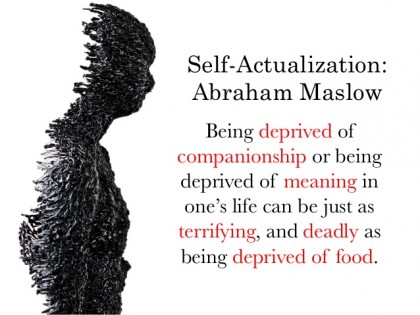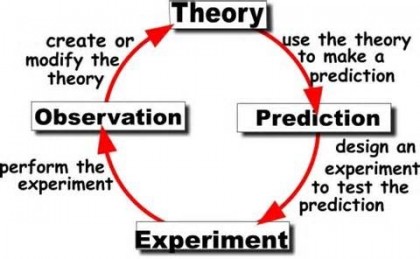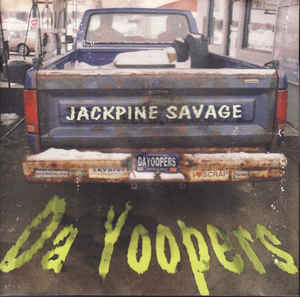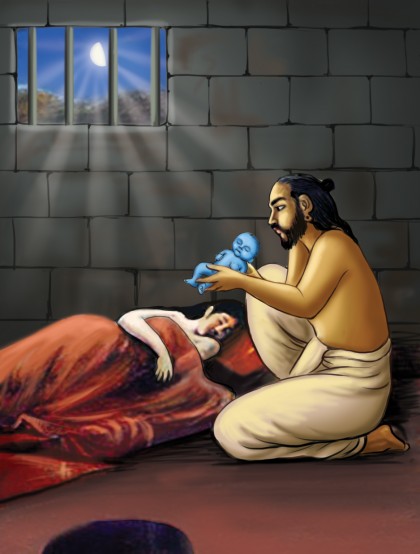Samain Thanksgiving Moon
 Wonder what the stars (and the planets) have to say about reading my full chart for the first time today? We could look it up. I’m going to Golden, under Table Mesa, to the Bean Fosters coffee house. Elisa, a petroleum geologist, dean of academics at a consortium of community colleges and a member of Congregation Beth Evergreen has done whatever astrologists do with my birth information. She says the consult lasts as long as I have questions. She really doesn’t have that long, so I’ll restrain myself.
Wonder what the stars (and the planets) have to say about reading my full chart for the first time today? We could look it up. I’m going to Golden, under Table Mesa, to the Bean Fosters coffee house. Elisa, a petroleum geologist, dean of academics at a consortium of community colleges and a member of Congregation Beth Evergreen has done whatever astrologists do with my birth information. She says the consult lasts as long as I have questions. She really doesn’t have that long, so I’ll restrain myself.
Even after finishing Tarnas the old statistical line, often heard in scientific circles, keeps coming to mind: Correlation without causation. It reminds us that many things correlate with each other, say a line of cars at a stoplight, with no cause behind them. It’s like diagnostics in medicine. A particular complex of symptoms may seem to point to a particular cause, but until the link between the symptoms and a certain cause is identified, all you have is correlation. And, it may be pointing you in the wrong direction.
Francis Bacon mentions four idols of the mind that lead us astray:*
*”Bacon also listed what he called the idols (false images) of the mind. He described these as things which obstructed the path of correct scientific reasoning.
- Idols of the Tribe (Idola tribus): This is humans’ tendency to perceive more order and regularity in systems than truly exists, and is due to people following their preconceived ideas about things.
- Idols of the Cave (Idola specus): This is due to individuals’ personal weaknesses in reasoning due to particular personalities, likes and dislikes.
- Idols of the Marketplace (Idola fori): This is due to confusion in the use of language and taking some words in science to have a different meaning than their common usage.
- Idols of the Theatre (Idola theatri): This is the following of academic dogma and not asking questions about the world.” wiki
 Bacon also points out that the path of facts and induction may be slow, but it heads in the right direction. No matter how fast you go down a path without facts, you will never reach the truth.
Bacon also points out that the path of facts and induction may be slow, but it heads in the right direction. No matter how fast you go down a path without facts, you will never reach the truth.
This way of thinking is the grand inheritance of the Enlightenment, follow reason. However, if you look at Bacon’s fourth idol, the idols of the Theatre, you will notice a potential problem. In Bacon’s time of course he aimed his critique at the Scholastics whose main mode of learning was deductive, starting often with scripture. It’s fair, at least to me, that now we consider whether the Copernican Self has become a contemporary idol of the theatre, an explanatory idea with great power, just like Scholastic reasoning, but, much like Scholastic thought, obscuring greater truths.
To summarize. I found Tarnas’ critique of skepticism personally valid. It’s a tool, not a way of life. I found his description of the Copernican Self and the primal Self accurate and helpful. I also took his point about the angst and anomie that infects our age as rooted in the disenchantment of the universe occasioned by thinkers like Copernicus and Descartes. His argument that it is time for a synthesis between the Copernican (modern) Self and the primal Self seems important to me, a correct diagnosis and a possible solution.
 His emphasis on depth psychology, in particular synchronicity and the collective unconscious, as partial evidence that the modern Self need not be wholly isolate makes sense to me. I had many years of Jungian analysis and find the non-pathological approach of Jungian thought very congenial. I’m not sure how many outside the world of depth psychology would agree with him on this point however. But, I do.
His emphasis on depth psychology, in particular synchronicity and the collective unconscious, as partial evidence that the modern Self need not be wholly isolate makes sense to me. I had many years of Jungian analysis and find the non-pathological approach of Jungian thought very congenial. I’m not sure how many outside the world of depth psychology would agree with him on this point however. But, I do.
That synthesis between the modern and the primal, perhaps a neo-primal Self, does require some way of convincing modernist thought to make the leap, to create openings in the seal around its Self. This is a difficult requirement since it means setting aside that Self as the center of a disenchanted universe; much, it has just occurred to me, in the manner that Copernicus and Kepler dethroned the earth as the center of the universe.
 Neither an obvious nor an easy matter. “I’m going to have my chart read this afternoon.” “I know.” “Yes, you know, but you don’t approve.” “Oh, I think it’s fine to read your chart. But, believing it?” She shrugged. Kate and I share a strong or high version of the modern Self, reason uber alles. I have flirted, however, for a very long time with a Romantic view carrying an aesthetic and spiritual seeker’s heart inside a rationalist’s body and mind. This is not a synthesis. It’s a carrying of opposites, learning from both, knowing the parallel, never touching rails down which they run.
Neither an obvious nor an easy matter. “I’m going to have my chart read this afternoon.” “I know.” “Yes, you know, but you don’t approve.” “Oh, I think it’s fine to read your chart. But, believing it?” She shrugged. Kate and I share a strong or high version of the modern Self, reason uber alles. I have flirted, however, for a very long time with a Romantic view carrying an aesthetic and spiritual seeker’s heart inside a rationalist’s body and mind. This is not a synthesis. It’s a carrying of opposites, learning from both, knowing the parallel, never touching rails down which they run.
The synthesis between these two metaphysics, one disenchanted, one ensouled, seems like the task of our time, our Great Work, to use Thomas Berry’s idea. I don’t think it’s a coincidence that his Great Work for our generation, creating a sustainable human presence on earth, may require such a synthesis to succeed. I also think this synthesis defines the inchoate sense that I had about the need to reimagine faith. No, I don’t want to revert to an unexamined enchanted universe, to become a shaman for a world without reason. At the same time I no longer want to live in a disenchanted universe, alone in the cold vastness. Will astrology prove a tool to help with the synthesis? I’m not sure. But I’m gonna give it an honest examination. Starting with the event on 9:30 am on February 14th, 1947, in the small Red River town of Duncan, Oklahoma.

 Went to
Went to  “Back there, where the Help Desk sign is, we have our inventory. Customers can’t go back there, but it’s all searchable and staff will bring you anything you want to see. 8 million comics in inventory. 2 million on display. 10 million all together.” He seemed sincere, but the numbers seem pretty damned high to me. Even so, there’s no doubt there were a vast amount of comic books.
“Back there, where the Help Desk sign is, we have our inventory. Customers can’t go back there, but it’s all searchable and staff will bring you anything you want to see. 8 million comics in inventory. 2 million on display. 10 million all together.” He seemed sincere, but the numbers seem pretty damned high to me. Even so, there’s no doubt there were a vast amount of comic books. In addition to the 10 million comics several different displays featured toys related to the various universes represented in the comic book world. A true multiverse of the mind. There were Star Wars toys with death stars and yodas, Empire fighters and Millennium Falcons. Star Trek toys with Data, Captain Picard, models of the Enterprise. A large Ironman statue. Intricate modeled scenes from Batman, Superman, the Marvel comics sat alongside small action figures. There were chess pieces made of comic book figurines, including one full chess set with pieces modeled from Batman characters.
In addition to the 10 million comics several different displays featured toys related to the various universes represented in the comic book world. A true multiverse of the mind. There were Star Wars toys with death stars and yodas, Empire fighters and Millennium Falcons. Star Trek toys with Data, Captain Picard, models of the Enterprise. A large Ironman statue. Intricate modeled scenes from Batman, Superman, the Marvel comics sat alongside small action figures. There were chess pieces made of comic book figurines, including one full chess set with pieces modeled from Batman characters. Wonder what the stars (and the planets) have to say about reading my full chart for the first time today? We could look it up. I’m going to Golden, under Table Mesa, to the Bean Fosters coffee house. Elisa, a petroleum geologist, dean of academics at a consortium of community colleges and a member of Congregation Beth Evergreen has done whatever astrologists do with my birth information. She says the consult lasts as long as I have questions. She really doesn’t have that long, so I’ll restrain myself.
Wonder what the stars (and the planets) have to say about reading my full chart for the first time today? We could look it up. I’m going to Golden, under Table Mesa, to the Bean Fosters coffee house. Elisa, a petroleum geologist, dean of academics at a consortium of community colleges and a member of Congregation Beth Evergreen has done whatever astrologists do with my birth information. She says the consult lasts as long as I have questions. She really doesn’t have that long, so I’ll restrain myself. Bacon also points out that the path of facts and induction may be slow, but it heads in the right direction. No matter how fast you go down a path without facts, you will never reach the truth.
Bacon also points out that the path of facts and induction may be slow, but it heads in the right direction. No matter how fast you go down a path without facts, you will never reach the truth. His emphasis on depth psychology, in particular synchronicity and the collective unconscious, as partial evidence that the modern Self need not be wholly isolate makes sense to me. I had many years of Jungian analysis and find the non-pathological approach of Jungian thought very congenial. I’m not sure how many outside the world of depth psychology would agree with him on this point however. But, I do.
His emphasis on depth psychology, in particular synchronicity and the collective unconscious, as partial evidence that the modern Self need not be wholly isolate makes sense to me. I had many years of Jungian analysis and find the non-pathological approach of Jungian thought very congenial. I’m not sure how many outside the world of depth psychology would agree with him on this point however. But, I do. Neither an obvious nor an easy matter. “I’m going to have my chart read this afternoon.” “I know.” “Yes, you know, but you don’t approve.” “Oh, I think it’s fine to read your chart. But, believing it?” She shrugged. Kate and I share a strong or high version of the modern Self, reason uber alles. I have flirted, however, for a very long time with a Romantic view carrying an aesthetic and spiritual seeker’s heart inside a rationalist’s body and mind. This is not a synthesis. It’s a carrying of opposites, learning from both, knowing the parallel, never touching rails down which they run.
Neither an obvious nor an easy matter. “I’m going to have my chart read this afternoon.” “I know.” “Yes, you know, but you don’t approve.” “Oh, I think it’s fine to read your chart. But, believing it?” She shrugged. Kate and I share a strong or high version of the modern Self, reason uber alles. I have flirted, however, for a very long time with a Romantic view carrying an aesthetic and spiritual seeker’s heart inside a rationalist’s body and mind. This is not a synthesis. It’s a carrying of opposites, learning from both, knowing the parallel, never touching rails down which they run. Reading two books right now,
Reading two books right now, 
 Looking for light in prison. An assignment for the kabbalah class tonight. Rabbi Jamie suggested watching a movie like Hurricane, about Rubin Carter. I thought of MLK and Letters from the Birmingham Jail and Nelson Mandela, too. Then I remembered a portion of the
Looking for light in prison. An assignment for the kabbalah class tonight. Rabbi Jamie suggested watching a movie like Hurricane, about Rubin Carter. I thought of MLK and Letters from the Birmingham Jail and Nelson Mandela, too. Then I remembered a portion of the  Finally, nine years later, Devaki is pregnant again, this time with the eighth son Kansa dreaded. This son is Krishna, an avatar of Vishnu.
Finally, nine years later, Devaki is pregnant again, this time with the eighth son Kansa dreaded. This son is Krishna, an avatar of Vishnu.

 Zero K examines, in a minimalist world, our obsessions with death, immortality and technology while recounting a strained father-son relationship. It’s stark and strange, featuring, for example, a compound somewhere in the ‘stans. At this compound, mostly underground, is the center for a cryogenics movement funded by wealthy folk hoping to live forever, or at least until there’s a cure for whatever they have right now.
Zero K examines, in a minimalist world, our obsessions with death, immortality and technology while recounting a strained father-son relationship. It’s stark and strange, featuring, for example, a compound somewhere in the ‘stans. At this compound, mostly underground, is the center for a cryogenics movement funded by wealthy folk hoping to live forever, or at least until there’s a cure for whatever they have right now. Underground Railroad imagines a real railroad, with tunnels and station masters, which carries escaped slaves. It is not so much the railroad though that commends this novel, but the story of the slaves who escape. This novel puts you inside the minds of slaves on the plantation and as they decide to flee and the ambiguous world that faces them even in relative freedom. Claustrophobic, scary, uncertain life on the run sometimes contrasted favorably with enslavement, sometimes furnished prisons and punishments that did not. I appreciated the chance to live in this world for the time it took to read this novel.
Underground Railroad imagines a real railroad, with tunnels and station masters, which carries escaped slaves. It is not so much the railroad though that commends this novel, but the story of the slaves who escape. This novel puts you inside the minds of slaves on the plantation and as they decide to flee and the ambiguous world that faces them even in relative freedom. Claustrophobic, scary, uncertain life on the run sometimes contrasted favorably with enslavement, sometimes furnished prisons and punishments that did not. I appreciated the chance to live in this world for the time it took to read this novel. The Nix uses massive online video gaming, the Chicago protests of 1968, and the life of a disappointed assistant professor of English and his estranged mother to reflect on what it means to be human.
The Nix uses massive online video gaming, the Chicago protests of 1968, and the life of a disappointed assistant professor of English and his estranged mother to reflect on what it means to be human. He sits, early in the morning, while it is still dark outside, with his head in his hands. Orion, his longtime friend hangs in the sky visible to the southwest, Scorpio and Cassiopeia and the Drinking Gourd out there, too. A crescent Thanksgiving Moon, waxing toward its Super Moon event on November 25th, was visible last night.
He sits, early in the morning, while it is still dark outside, with his head in his hands. Orion, his longtime friend hangs in the sky visible to the southwest, Scorpio and Cassiopeia and the Drinking Gourd out there, too. A crescent Thanksgiving Moon, waxing toward its Super Moon event on November 25th, was visible last night. In this case Trumpism is the monster, a living candidacy patched together from a body of populist resentment, the brain of a nativist bigot, the nervous system of fearful white males and the legs of second-amendment worshipping other-phobic citizens. The arms, though, the arms are Trump’s, dangling like the tentacles of a squid, ready to grab, squeeze, embrace. Force. Trump is Frankenstein to this political moment in the Republican Party. The GOP provided the lightning that brought this monster to life and has paraded it with pride through this mockery of a campaign.
In this case Trumpism is the monster, a living candidacy patched together from a body of populist resentment, the brain of a nativist bigot, the nervous system of fearful white males and the legs of second-amendment worshipping other-phobic citizens. The arms, though, the arms are Trump’s, dangling like the tentacles of a squid, ready to grab, squeeze, embrace. Force. Trump is Frankenstein to this political moment in the Republican Party. The GOP provided the lightning that brought this monster to life and has paraded it with pride through this mockery of a campaign. Race relations are in a visibly violent phase. Police kill black folks with so steady a drumbeat that it has become like Trump’s long string of insults to America, dulling our capacity for outrage. Misogyny is at its peak in the Donald, powerful at the same time as our first serious female candidate.
Race relations are in a visibly violent phase. Police kill black folks with so steady a drumbeat that it has become like Trump’s long string of insults to America, dulling our capacity for outrage. Misogyny is at its peak in the Donald, powerful at the same time as our first serious female candidate.